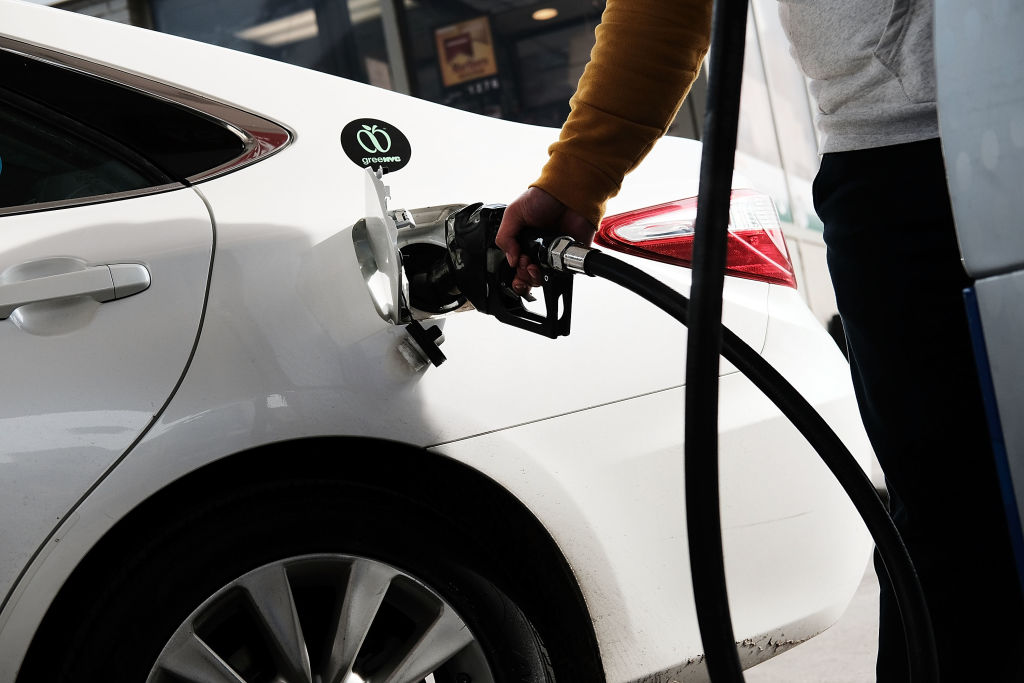Global demand for gasoline peaked in 2019, won't hit that level again, International Energy Agency forecasts


A free daily email with the biggest news stories of the day – and the best features from TheWeek.com
You are now subscribed
Your newsletter sign-up was successful
Demand for gasoline dropped in 2020 as the COVID-19 pandemic brought much of the world to a standstill. The International Energy Agency (IEA) predicted Wednesday that gasoline won't ever fully recover. "We do not think gasoline consumption will come back to 2019 levels again," said IEA Executive Director Fatih Birol.
The IEA released its five-year forecast hours after BMW became the latest automaker to announce a big shift to electric vehicles. But battery-powered cars and trucks were only one of the factors that convinced the Paris-based energy monitor that we've reached peak gas demand, The Wall Street Journal reports. New gasoline-powered vehicles are also more fuel-efficient, the IEA noted, and the rise of working from home will likely change commuting practices.
Gas demand will still rise in developing countries like India and China for years to come, but the accelerating adoption of elective vehicles in Europe, the U.S., and other wealthy nations will bring overall consumption down, the IEA forecasts. While the thirst for gas won't fully recover, demand for oil will rebound and rise through at least 2026 and jet fuel consumption will slowly increase, topping 2019 levels in 2024, the agency said.
The Week
Escape your echo chamber. Get the facts behind the news, plus analysis from multiple perspectives.

Sign up for The Week's Free Newsletters
From our morning news briefing to a weekly Good News Newsletter, get the best of The Week delivered directly to your inbox.
From our morning news briefing to a weekly Good News Newsletter, get the best of The Week delivered directly to your inbox.
BMW said Wednesday it intends to make half its fleet battery-powered by 2030, though it will continue selling internal combustion engine vehicles, especially in developing countries. General Motors has said it plans to make its entire fleet emissions-free by 2035, Volvo is aiming to produce only electric vehicles by 2030, and Volkswagen says half its car sales will be for EVs by 2030 and it's building six large new battery factories in Europe.
A free daily email with the biggest news stories of the day – and the best features from TheWeek.com
Peter has worked as a news and culture writer and editor at The Week since the site's launch in 2008. He covers politics, world affairs, religion and cultural currents. His journalism career began as a copy editor at a financial newswire and has included editorial positions at The New York Times Magazine, Facts on File, and Oregon State University.
-
 What to know before filing your own taxes for the first time
What to know before filing your own taxes for the first timethe explainer Tackle this financial milestone with confidence
-
 The biggest box office flops of the 21st century
The biggest box office flops of the 21st centuryin depth Unnecessary remakes and turgid, expensive CGI-fests highlight this list of these most notorious box-office losers
-
 What are the best investments for beginners?
What are the best investments for beginners?The Explainer Stocks and ETFs and bonds, oh my
-
 TikTok secures deal to remain in US
TikTok secures deal to remain in USSpeed Read ByteDance will form a US version of the popular video-sharing platform
-
 Unemployment rate ticks up amid fall job losses
Unemployment rate ticks up amid fall job lossesSpeed Read Data released by the Commerce Department indicates ‘one of the weakest American labor markets in years’
-
 US mints final penny after 232-year run
US mints final penny after 232-year runSpeed Read Production of the one-cent coin has ended
-
 Warner Bros. explores sale amid Paramount bids
Warner Bros. explores sale amid Paramount bidsSpeed Read The media giant, home to HBO and DC Studios, has received interest from multiple buying parties
-
 Gold tops $4K per ounce, signaling financial unease
Gold tops $4K per ounce, signaling financial uneaseSpeed Read Investors are worried about President Donald Trump’s trade war
-
 Electronic Arts to go private in record $55B deal
Electronic Arts to go private in record $55B dealspeed read The video game giant is behind ‘The Sims’ and ‘Madden NFL’
-
 New York court tosses Trump's $500M fraud fine
New York court tosses Trump's $500M fraud fineSpeed Read A divided appeals court threw out a hefty penalty against President Trump for fraudulently inflating his wealth
-
 Trump said to seek government stake in Intel
Trump said to seek government stake in IntelSpeed Read The president and Intel CEO Lip-Bu Tan reportedly discussed the proposal at a recent meeting
